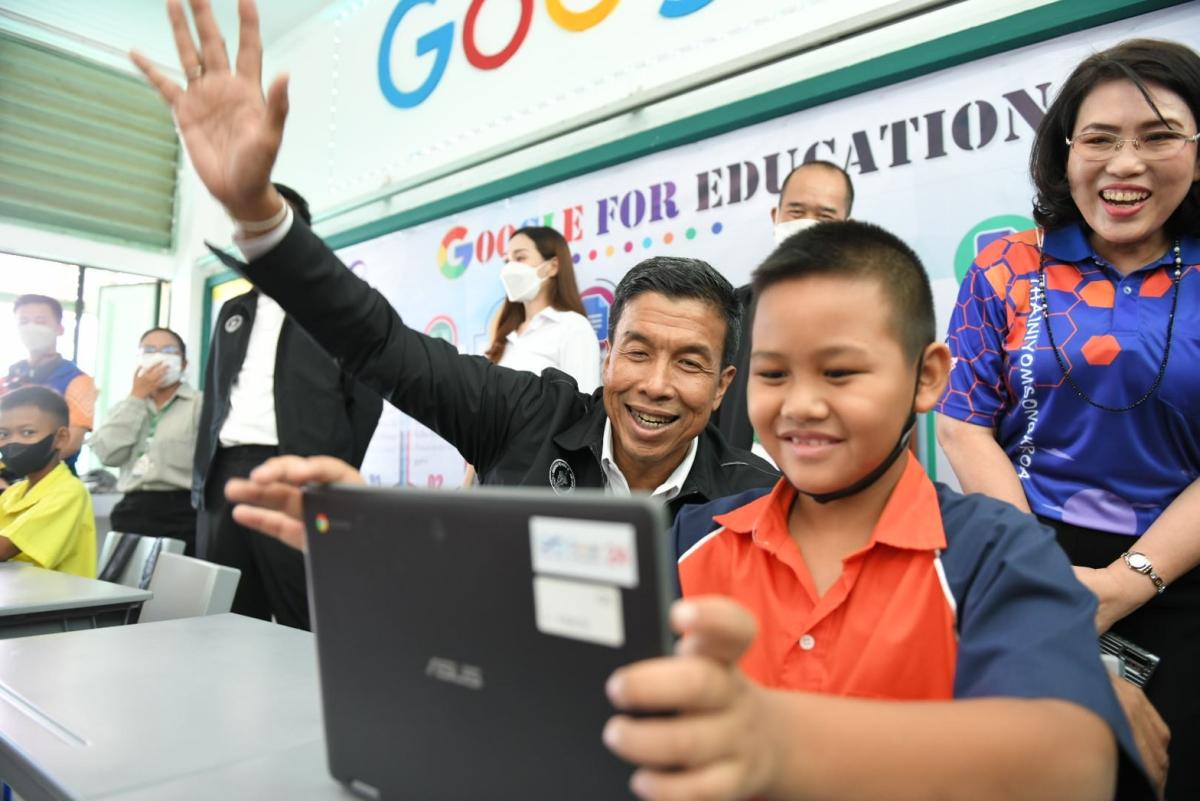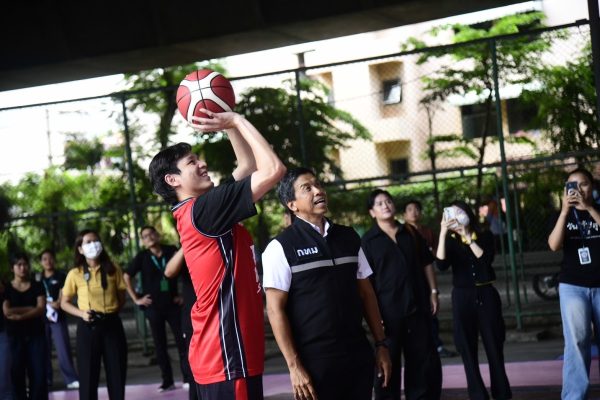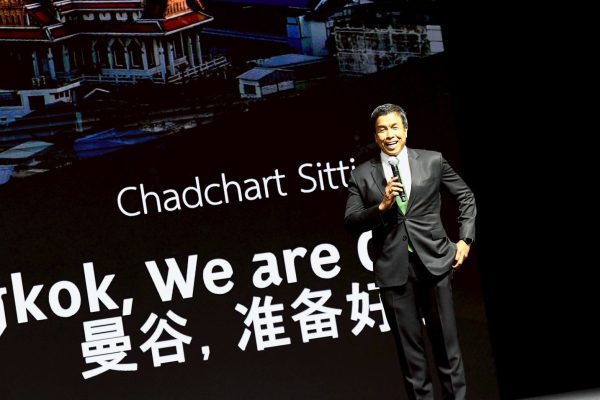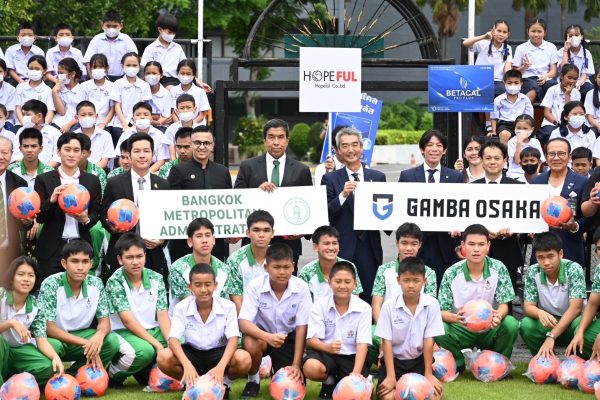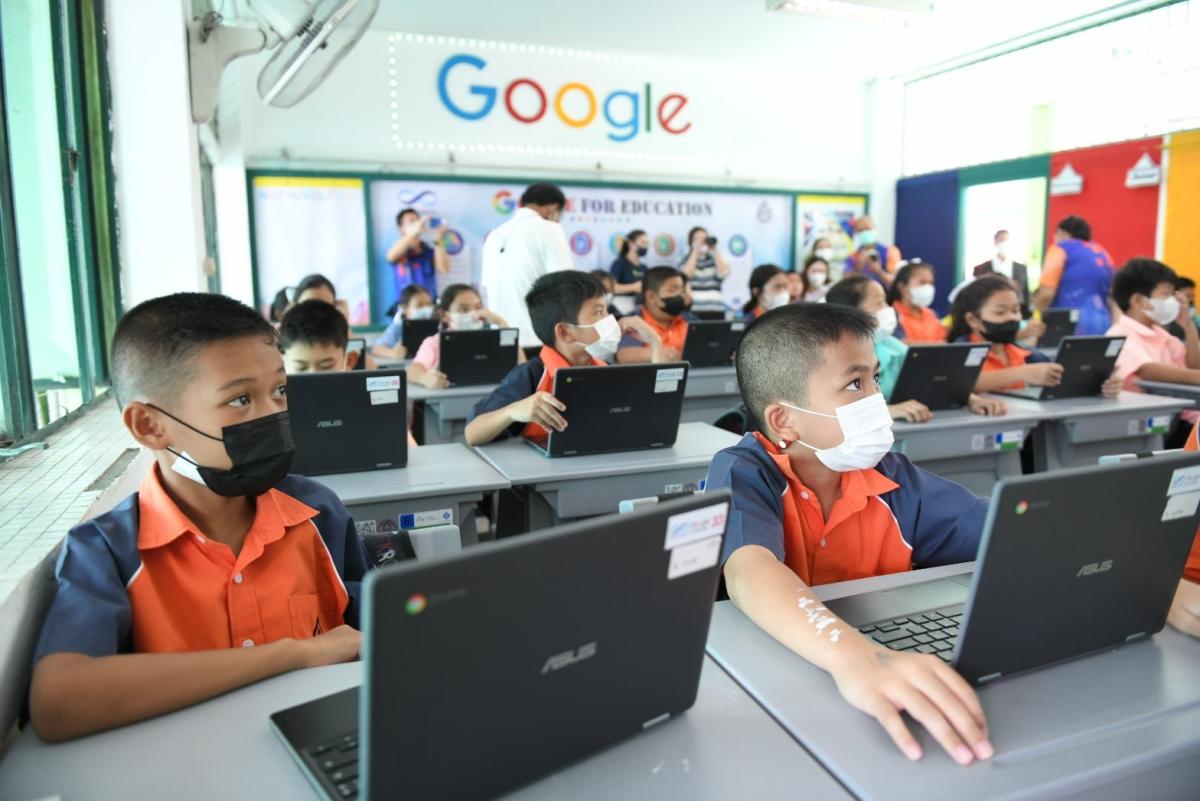
Bangkok governor Chadchat Sittipunt is challenging city dwellers to come up with 130,000 used computers for donation to underprivileged schools to reduce educational inequality.
Chadchart came up with the challenge after visiting Thai Niyom Songkhro School in Bang Khen district on Wednesday where he saw firsthand a digital learning project being piloted for grade 5 students.
“Thai Niyom Songkhro School is Bangkok’s hope of overhauling the learning format to reduce educational inequality, making sure that all children receive a quality education that grants them better career opportunities,” he said. “Unlike other aspects of development, education cannot be improved by simply throwing money at it. Teachers also need to play an important role in ensuring that every child is taken care of.”
The governor went on to say that the pilot phase of the digital classroom project has revealed several obstacles in digitisation of the learning process, among them that computers are more suitable for children’s learning than tablets.
“Instead of buying new computers, we believe it would be more efficient to encourage participation from the public and our network of partners to donate used ones,” he noted. “Several office buildings have outdated computers that they try to get rid of, and these are usable in the project since classroom computers do not have to have high specifications.”
It is also a great way to reduce electronic waste in the city, he added.
“130,000 used computers are not a tall order. Let’s see how fast Bangkokians can beat this goal,” said Chadchart, adding that those who wish to donate can visit the website digitalclassroom.bangkok.go.th for details, or contact the Mirror Foundation. District offices will soon accept donations of computers, he added.
Joining Chadchart on Wednesday was his deputy Sanon Wangsrangboon, who explained that the figure of 130,000 is based on the approximate number of students from grade 4 to middle school in Bangkok, regarded as a crucial learning period that requires efficient educational guidance for youngers to choose their future field of study.
He added that about 2,200 computers used in the pilot phase have been donated by private companies, and the BMA is looking to expand the partner network to secure more computers for schools in the city.
According to Sanon, the city has set a target of obtaining 12,500 computers by the end of 2024, 43,642 computers in 2025, and 71,580 computers in 2026, thus achieving the 130,000 goal.
The pilot phase of the digital classroom project has been carried out by the BMA’s Education Department in grade 5 classrooms of Thai Niyom Songkhro School, with a plan to expand to 11 more schools in 11 districts by the end of the year.

